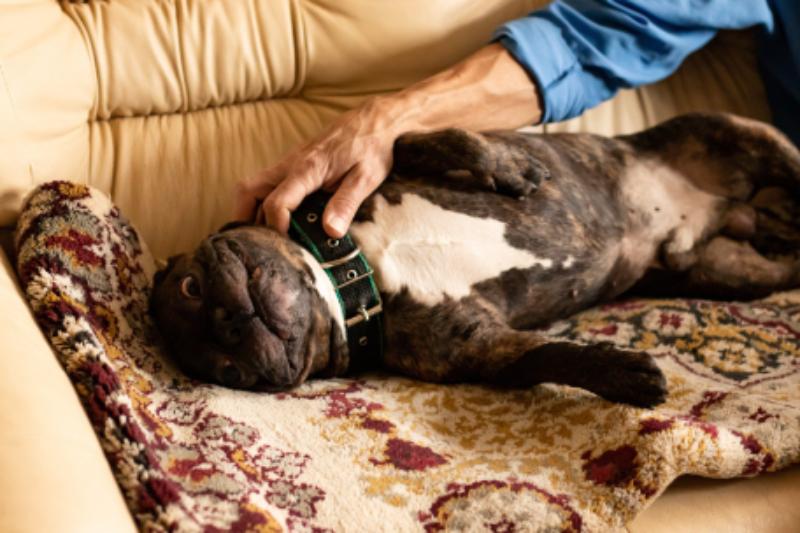Dogs are known for making all sorts of odd, cute, and sometimes concerning noises. From snuffling and yipping to barking and snoring, dogs are pretty much four-legged symphonies! If your dog recently started snoring more than you’re used to, you may ask yourself, “Should I worry about my dog snoring?”. While there are normal reasons for pups to snore, some instances could indicate health issues.
Keep reading to learn all about why dogs snore and when that snoring may be a reason to see a vet.
Why is My Dog Snoring?
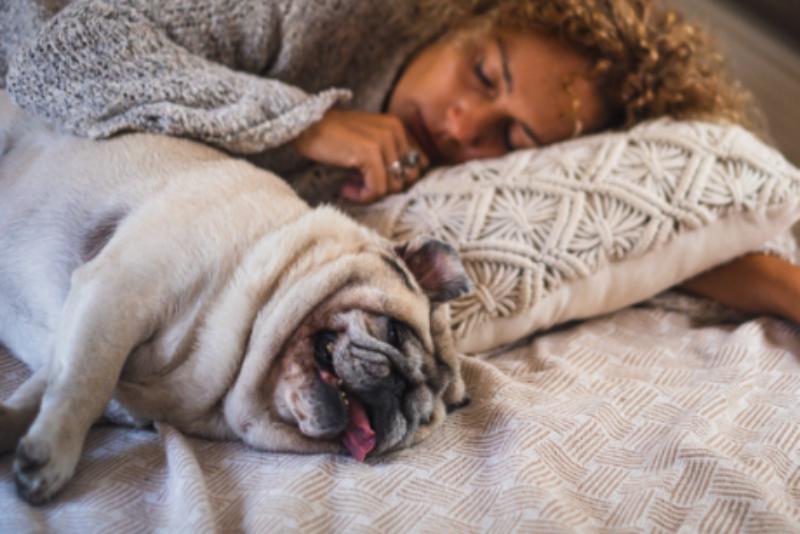
Dogs, like humans, snore for a variety of reasons. Dog snoring is totally normal for the most part. But, sometimes, it can indicate a more serious medical condition. Here are some common reasons your dog is snoring.
Allergies
Have you ever thought your dog might have allergies? Well, snoring could be a sign that they do! From seasonal allergies to food, dogs can experience allergic reactions in similar ways to people. Allergens inflame the nasal passages, causing swelling that limits airflow. If you notice your dog starts snoring more in the spring, the pollen may be to blame. Contact your local Flagstaff vet for ideas on how to handle your dog’s allergies.
Obesity
Overweight dogs are more likely to snore. Overweight or obese dogs can have difficulty breathing because the fat can collect in the throat and block the airways, which can cause snoring when they sleep.
Sleep Position
Roll over, Spot! Sometimes, your dog’s zzz’s are merely a result of what position they’re sleeping in. If your dog sleeps on its back, it may cause their tongue to fall back against their throat, partially blocking the airway.
Cold or Illness
If your dog gets a cold or another infection, it may cause their nasal cavities to swell up. This makes it difficult to breathe, which can result in snoring. If you’re worried about your dog being sick, make an appointment today!
Obstructions
Anything that obstructs the natural airflow, such as a growth within your dog’s air passages or an object lodged in its nasal cavity, can make your dog snore. This could potentially contribute to BOAS (Brachycephalic Obstructive Airway Syndrome).
5 Symptoms of Brachycephalic Obstructive Airway Syndrome
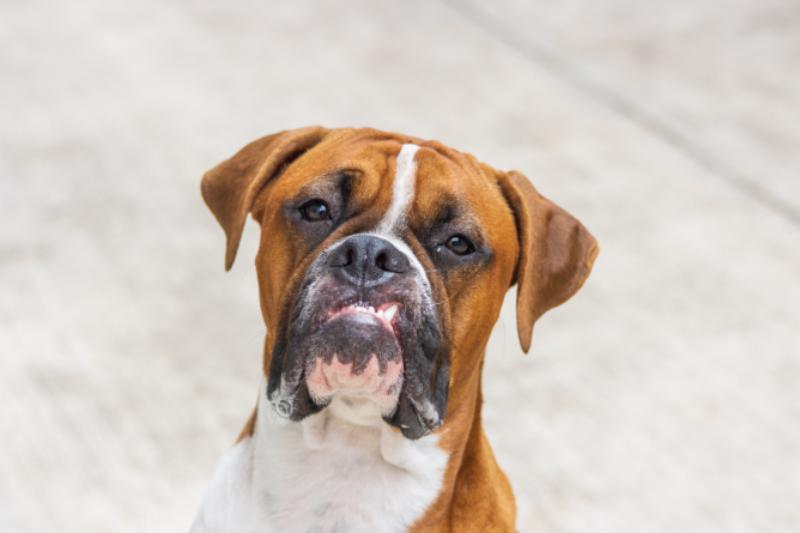
BOAS stands for Brachycephalic Obstructive Airway Syndrome. It’s a condition that affects certain breeds of dogs and cats with short noses, like the French bulldog, bulldog, pug, pekingese, shih tzu, Japanese chin, boxer, Boston terrier, and even Persian cats. These animals can have trouble breathing normally because of their short noses and certain anatomical features, like narrow nostrils and a long soft palate. This could be the cause of your dog’s snoring!
Other symptoms include difficulty breathing and sometimes even more serious problems like heat intolerance or collapse.
Here are more signs and symptoms of BOAS:
1. Stenotic Nares
Nares are the nasal opening on your pup’s nose. Stenotic Nares are when the nostrils are malformed so that they are too small or collapse inwards. This narrows the airway and makes it more difficult to breathe.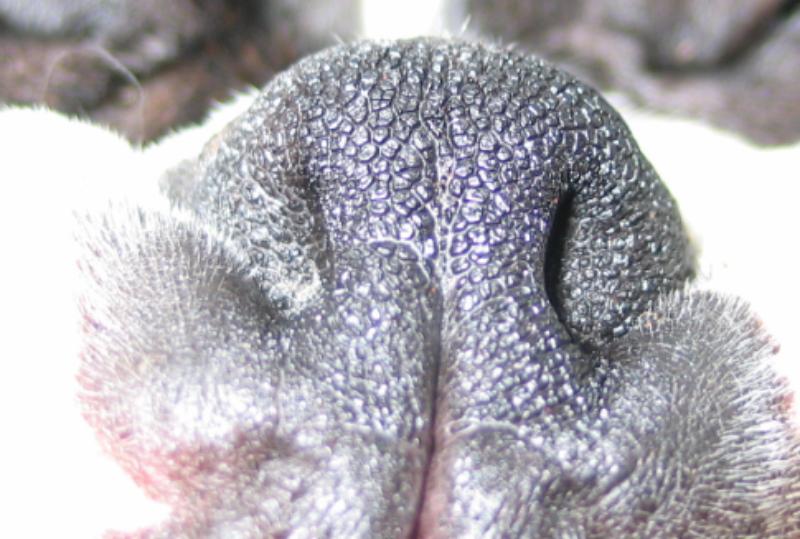
2. Elongated or Thick Soft Palate
Your dog’s soft palate is the soft tissue located behind the hard palate (roof of the mouth) in the back part of the mouth. Elongated or thick soft palates can obstruct portions of the windpipe entrance during a dog’s inhalation, decreasing the air intake and resulting in snorting noises. This is one of the most common causes of BOAS.
3. Everted Laryngeal Saccules
Laryngeal saccules are small sacs or pouches that are located just inside the larynx. In some cases, these can turn outwards or sucked in due to pressure associated with increased respiratory effort. If dogs have elongated or thick soft palates, they may need to breathe harder to get enough air. This effort can flip the laryngeal saccules.
4. Hypoplastic Trachea
Hypoplastic trachea refers to a condition where the trachea (windpipe) is abnormally narrow or underdeveloped. This can exacerbate respiratory issues in brachycephalic breeds.
5. Laryngeal Collapse
Laryngeal collapse is a condition in which the structures of the larynx (voice box) lose their normal shape and function, leading to airway obstruction. This is often caused by chronic stress on the cartilage of the larynx.
What to Expect in BOAS Surgery for Dogs
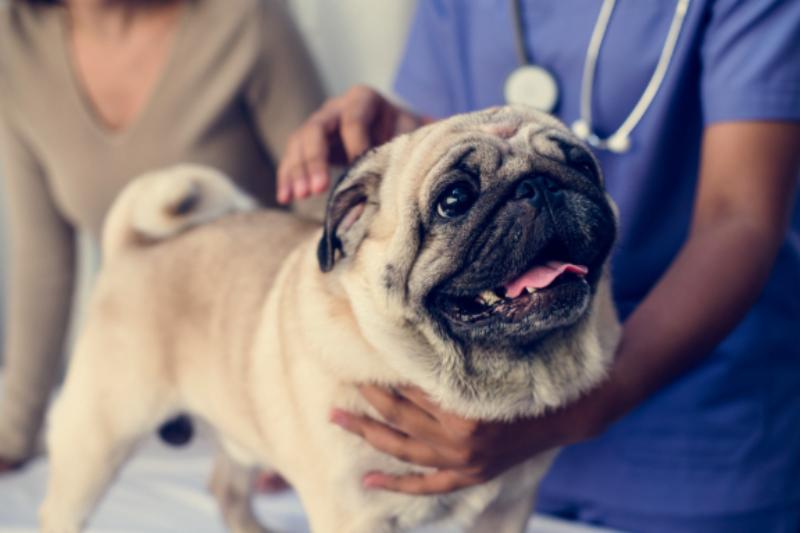
BOAS surgery aims to correct anatomical abnormalities in the airway of brachycephalic dogs, such as narrowed nostrils, elongated soft palate, and other obstructive features. By addressing these issues, the surgery improves airflow, reducing respiratory distress and associated symptoms like snoring and difficulty breathing.
At Continental Animal Wellness Clinic, we encourage pet owners to opt for BOAS surgery before their dog is in a respiratory crisis. It is recommended that severely affected dogs have surgical correction as young as 4-6 months of age. If corrections are made early in life, there is a decreased chance of more severe airway and gastrointestinal issues developing later in life.
Set Up a Consultation with a Flagstaff Vet
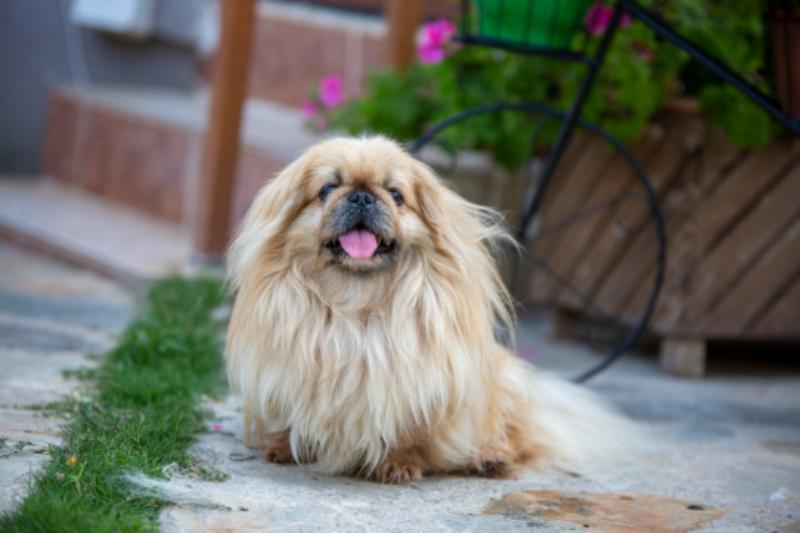 If your dog is a snorer, it might be a minor annoyance or a cute quirk. But it could be a sign of BOAS. Because BOAS can affect their quality of life, it’s important for pet owners to be aware of the signs and work with their veterinarians to manage the condition. If you’re still uncertain about the cause of your dog’s snoring, schedule an appointment! We can provide a BOAS consultation to see if it is a viable option for your dog.
If your dog is a snorer, it might be a minor annoyance or a cute quirk. But it could be a sign of BOAS. Because BOAS can affect their quality of life, it’s important for pet owners to be aware of the signs and work with their veterinarians to manage the condition. If you’re still uncertain about the cause of your dog’s snoring, schedule an appointment! We can provide a BOAS consultation to see if it is a viable option for your dog.
We’re here to make sure you have a good experience with any kind of pet surgery. Flagstaff, Arizona, is a wonderful place for dogs — let’s make sure they’re living their best life!

